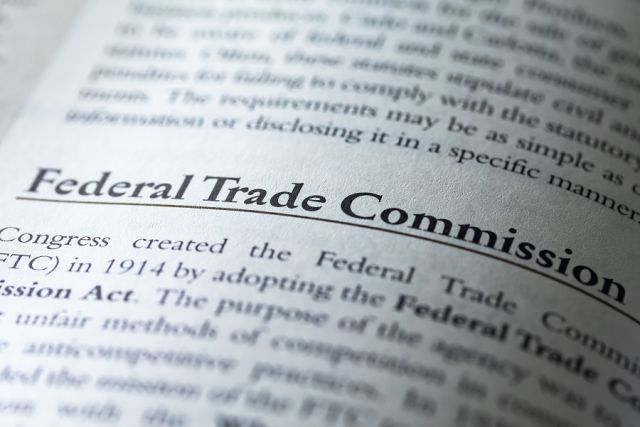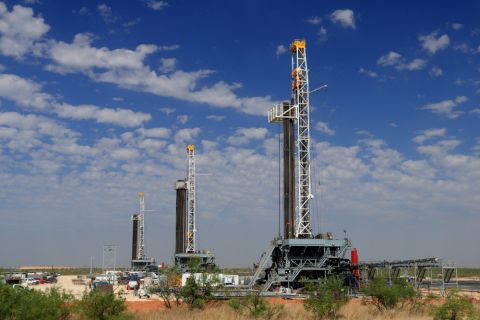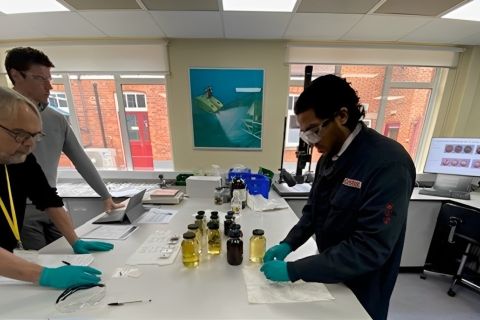
Exxon reported more scrutiny from the FTC on Dec. 6, while Pioneer Natural Resources’ incoming CEO Rich Dealy told Hart Energy both firms will be transparent with the inquiry. (Source: Shutterstock.com)
Exxon Mobil and Pioneer Natural Resources deal negotiators expected questions from the U.S. Federal Trade Commission (FTC) as they were constructing the $60 billion merger announced in October.
They weren’t wrong. The agency is demanding more information from the companies according to a Dec. 6 regulatory filing.
Both firms intend to cooperate and carry on, Pioneer’s incoming CEO, Rich Dealy, told Hart Energy.
Given the size and scale of the transaction, questions were inevitable. At close, the deal will give Exxon control of 15% of Permian Basin production, 5% of U.S. production and 3% of global production.
“We anticipated that would be the case,” Dealy said in a Dec. 6 exclusive interview.
“Clearly, the combined companies still doesn't set commodity prices,” he said. “At the end of the day, we are going to be very transparent and provide all the information, and it'll be fine.’”
Consolidation is entering the U.S. domestic political sphere as an election year looms and the FTC has recently scrutinized high-profile deals beyond oil and gas, including technology, aviation and healthcare transactions.
The FTC is currently arguing against Microsoft’s recent purchase of Activision at the Ninth Circuit U.S. Court of Appeals.
But U.S. Senate Majority Leader Chuck Schumer and several of his colleagues are taking clear aim at the oil and gas industry.
Schumer asked the agency to investigate whether the Exxon-Pioneer merger—and that of the subsequently announced Chevron acquisition of Hess Corp.—violate antitrust laws in a Nov. 1 letter signed by 22 of his fellow Democratic Senator.
“By allowing Exxon and Chevron to further integrate their extensive operations into important oil-and-gas fields, these deals are likely to harm competition, risking increased consumer prices and reduced output throughout the United States. At the regional level, the deals threaten to harm small operators and suppress wages,” Schumer said in the letter.
Pioneer and Exxon each received “second request” demands from the FTC – a standard solicitation for additional information and documents on Dec. 4, according to Exxon in a Dec. 6 filing with the U.S. Securities and Exchange Commission.
“The effect of a Second Request is to extend the waiting period imposed by the Hart-Scott-Rodino Antitrust Improvements Act of 1976, as amended (the “HSR Act”), until 30 days after each of the Company and Pioneer has substantially complied with the Second Request issued to it, unless that period is extended voluntarily by the parties or terminated sooner by the FTC,” Exxon said in the filing.
“The company and Pioneer continue to work constructively with the FTC in its review of the Merger and continue to expect that the Merger will be completed in the first half of 2024, subject to the fulfillment of the closing conditions, including receipt of required regulatory approvals and approval of Pioneer’s stockholders.”
Exxon and Pioneer announced the all-stock transaction, valued at approximately $59.5 billion, or $253 per share, in October. Terms of the agreement grant Pioneer shareholders 2.3234 shares of Exxon stock for each Pioneer share at closing. Including net debt, the approximate total enterprise value of the deal is $64.5 billion.
Recommended Reading
SM Energy Targets Prolific Dean in New Northern Midland Play
2024-05-08 - KeyBanc Capital Markets reports SM Energy’s wells “measure up well to anything being drilled in the Midland Basin by anybody today.”
Electric Hype vs. Hydraulic Reality: Advantages of Traditional Systems
2024-05-07 - Castrol's new fluid prevents gas hydrates in deepwater control systems.
CEO: Continental Adds Midland Basin Acreage, Explores Woodford, Barnett
2024-04-11 - Continental Resources is adding leases in Midland and Ector counties, Texas, as the private E&P hunts for drilling locations to explore. Continental is also testing deeper Barnett and Woodford intervals across its Permian footprint, CEO Doug Lawler said in an exclusive interview.
Halliburton’s Low-key M&A Strategy Remains Unchanged
2024-04-23 - Halliburton CEO Jeff Miller says expected organic growth generates more shareholder value than following consolidation trends, such as chief rival SLB’s plans to buy ChampionX.
EOG: Utica Oil Can ‘Compete with the Best Plays in America’
2024-05-06 - Oil per lateral foot in the Utica is as good as top Permian wells, EOG Resources told analysts May 3 as the company is taking the play to three-mile laterals and longer.





